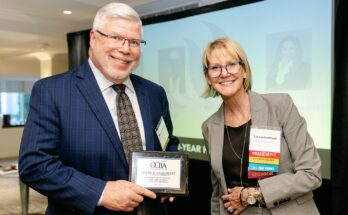 The Michigan Supreme Court’s March 30, 2010 ruling in favor of the Detroit Public Schools (DPS) allows DPS to keep millions of dollars that DPS collected improperly, by continuing to charge taxpayers for a millage for three years after it expired. Briggs Tax Service, LLC v Detroit Public Schools.
The Michigan Supreme Court’s March 30, 2010 ruling in favor of the Detroit Public Schools (DPS) allows DPS to keep millions of dollars that DPS collected improperly, by continuing to charge taxpayers for a millage for three years after it expired. Briggs Tax Service, LLC v Detroit Public Schools.
In September 1993, voters in Detroit approved a 32.25 mill school operating property tax. As a result, DPS was authorized to levy and collect property taxes from Detroit property owners until the millage expired on June 30, 2002. After the expiration of the millage in 2002, DPS continued to levy the tax through 2004. Taxpayers continued to pay the tax without objection.
In 2005, Briggs Tax Service filed a claim against DPS in the Michigan Tax Tribunal seeking a refund of the unauthorized taxes levied and collected by DPS.
The underlying issue in this case was whether the claim must be dismissed due to lack of jurisdiction (failure to timely file). Ordinarily, the time limit to file a claim for a refund in Michigan is 35 days after a final decision. MCL 205.735(3). Briggs did not meet this deadline and the Tax Tribunal initially dismissed Plaintiff’s claim. The Tax Tribunal then allowed Briggs to amend its petition in order to assert a claim under MCL 211.53a, which has a three year statute of limitations. Under MCL 211.53a, in order to assert a successful claim, the taxpayer must have been assessed and paid taxes in excess of the correct amount due to either (1) a clerical error or (2) a mutual mistake of fact by the assessing officer and the taxpayer.
There was no clerical error. The DPS intended to levy the taxes. Thus, in order for Briggs to successfully assert a claim under MCL 211.53a, Briggs had to prove that there was a mutual mistake of fact by both the assessing officer and the taxpayer.
The Michigan Supreme Court held that although a DPS employee certified the tax levy, a DPS employee is not the same as a tax assessor. Thus, there was no mistake by the assessing officer, because the “assessor” never certified the tax.
The Michigan Supreme Court also held that any mistake was a mistake of law, rather than a mistake of fact. The validity of a tax is a legal issue, rather than a factual issue.
While we find the result of the case somewhat surprising, the Michigan Supreme Court’s decision points out the importance of reviewing tax bills carefully, and promptly objecting to any item on the tax bill that you question.
Click here to download a PDF of the Michigan Supreme Court Opinion in Briggs Tax Service, LLC v Detroit Public Schools.
This article was written by Mark S. Demorest, Managing Member of Demorest Law Firm.



